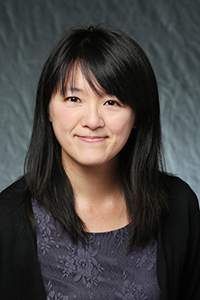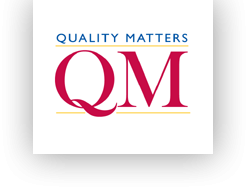Innovative Teaching and Learning Week brings together instructors from across campus to share emerging approaches, p
Gaining Tools, Perspective through ULearn Certification
Wed, 01/06/2021 - 8:15am When COVID-19 began to spread in Spring 2020, Dr. Manyu Li — like many instructors — had to teach in a whole new way. By taking the extra step to become ULearn Certified, Dr. Li says she gained new perspective and discovered the right tools for her courses.
When COVID-19 began to spread in Spring 2020, Dr. Manyu Li — like many instructors — had to teach in a whole new way. By taking the extra step to become ULearn Certified, Dr. Li says she gained new perspective and discovered the right tools for her courses.
Dr. Li, an assistant professor of psychology, planned to earn her ULearn Certification to teach online and hybrid courses at the University of Louisiana at Lafayette, but COVID-19 pushed up her timetable.
"I didn't expect that it would happen this fast," she says. “But this past summer, I had to stay home so that was a good time to learn about it and to give my students the best experience.”
To become certified, UL Lafayette faculty must complete a combination of the Applying the Quality Matters Rubric workshop and online workshops from our catalog of Professional Development Courses.
Dr. Li says the training was both manageable and insightful.
“The Distance Learning Staff do a very good job of modeling online teaching for us so we can experience that,” Dr. Li says. “I learned a lot being a student in those courses.”
Particularly, Dr. Li gained new perspective on establishing clear learning objectives for her PSYC 330 and PSYC 340 courses.
"With objectives, it keeps me focused on what I want them to learn, and I think that helps me a lot when I prepare these remote courses,” Dr. Li says. “The feedback I got from my students is that it makes them feel very clear about everything they're doing in each module. And I think it's because of the objectives and activities that match with the objectives."
She says she plans to carry that clarity and organization into future courses, regardless of modality.
Dr. Li has also made use of video lecture tools, including Panopto, to create accessible micro-lectures for her remote courses.
“Although it took me more time to create video, I feel I can be more concise in breaking it down into topics with each mini video micro lecture, focusing on a topic or an example, and concentrating that.”
By using Panopto, Dr. Li can easily edit her recordings and captions to provide more accessible lectures.
“Panopto is so user friendly that I can easily change whatever [autocaptioning] mistake they have,” Dr. Li says. “And then I can cut easily so if I make a mistake I just keep talking and then later I just cut it. It saves a lot of time.”
Creating accessible online learning environments has become a priority for Dr. Li, not only for students who may need accommodations, but all her students.
“Previously, I might have had slide and study guide images that I don't use alt tags or links that are not featured in a very friendly way,” Dr. Li says. “So those skills, I'm going to keep for the rest of my teaching career.”
Learn more about accessibility and alignment by enrolling the self-paced Designing Accessible Courses Workshop or the facilitated Aligning Course Content to Learning Objectives course. Email distancelearning@louisiana.edu to get started.

 Quality Matters has launched the QM Higher Education Rubric, Seventh Edition.
Quality Matters has launched the QM Higher Education Rubric, Seventh Edition.